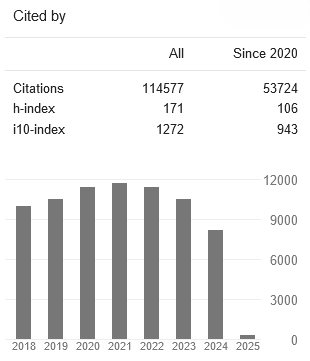Strategies for Export Diversification and Climate Resilience in Small Island Developing States (SIDS)
- Sahar Hassan Khayat
Abstract
Small Island Developing States (SIDS) are subjected to many challenges of economic vulnerability and climate risks due to their small size, geographical isolation, and dependence on a small range of exports. This narrative review explores strategies that incorporate export diversification and climate resilience to cater to these vulnerabilities while also ensuring sustainable development pathways. By evaluating successful diversification models, such as those in Mauritius and Singapore, and determining the role of trade agreements, technology, and institutional capacity, the study provides implementable insights for SIDS. Moreover, the paper demonstrates the necessity of incorporating climate resilience into sectors like tourism, fisheries, and agriculture, showing the potential of renewable energy and climate-smart practices. Even though opportunities for economic growth through diversification exist, barriers such as inadequate infrastructure, skill shortages, and high transportation costs remain significant. The paper also explores financial innovations, including debt-for-climate swaps, and the potential of regional cooperation to overcome scale constraints. Despite barriers like inadequate infrastructure and skill shortages, a unified, adaptive strategy can help SIDS achieve sustainable economic growth and climate adaptation. This review offers a policy framework for building resilient, diversified economies in the face of global challenges.
- Full Text:
 PDF
PDF
- DOI:10.5539/ijbm.v20n4p140
Journal Metrics
Google-based Impact Factor (2023): 0.86
h-index(2023): 152
i10-index(2023): 1168

Index
- Academic Journals Database
- ACNP
- AIDEA list (Italian Academy of Business Administration)
- ANVUR (Italian National Agency for the Evaluation of Universities and Research Institutes)
- Berkeley Library
- CNKI Scholar
- COPAC
- EBSCOhost
- Electronic Journals Library
- Elektronische Zeitschriftenbibliothek (EZB)
- EuroPub Database
- Excellence in Research for Australia (ERA)
- Genamics JournalSeek
- GETIT@YALE (Yale University Library)
- IBZ Online
- JournalTOCs
- Library and Archives Canada
- LOCKSS
- MIAR
- National Library of Australia
- Norwegian Centre for Research Data (NSD)
- PKP Open Archives Harvester
- Publons
- Qualis/CAPES
- RePEc
- ROAD
- Scilit
- SHERPA/RoMEO
- Standard Periodical Directory
- Universe Digital Library
- UoS Library
- WorldCat
- ZBW-German National Library of Economics
Contact
- Stephen LeeEditorial Assistant
- ijbm@ccsenet.org
